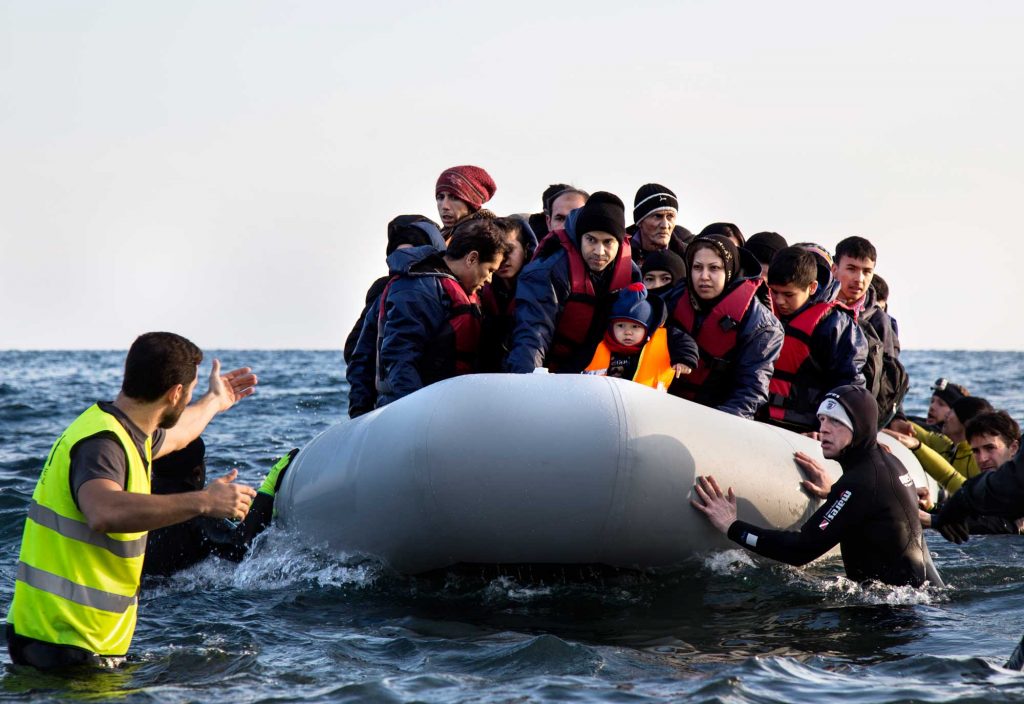
Emergency Response & Preparedness
First There, No Matter Where
Because disaster can strike anywhere, anytime, the ability to respond even in the most remote areas of the world is essential for effective emergency response. And with the acute phase of disaster response measured in just hours—that brief window of opportunity when most lives can be saved and life-threatening disease contained—deployment speed is critical.
With a roster of volunteer healthcare specialists on call, an experienced global staff, supplies pre-positioned internationally and EMT Type 1 (Fixed and Mobile) classification from the World Health Organization, International Medical Corps has a well-earned reputation as a fast, reliable first responder. We also focus extensively on training, preparing communities on how best to respond to adversity when disaster strikes—creating a response capability that is immediate and that ultimately fosters self-reliance.



Areas of Focus
Overview
International Medical Corps staff is on the front lines of the world’s most urgent crises. Our teams are at work in and around Syria, where a seemingly endless civil war has displaced millions of Syrians, who have sought refuge in neighboring countries and beyond. Our teams are delivering medical relief and other support in African nations struggling with hunger, famine and disease—including several deadly outbreaks of Ebola. All too often, decades of war make these places dangerous for residents to live—and for International Medical Corps to operate.
Key Stats



Overview
Since 1984, as soon as disaster strikes—no matter how distant or how dangerous the conditions—International Medical Corps has responded, to help those in urgent need.
Our teams have saved millions of lives by delivering healthcare and other vital relief, while providing training to those affected, enabling them to acquire the skills they need to be their own best first responders.
Key Stats



Overview
We pass essential skills into local hands, preparing those in disaster-prone areas to better withstand adversity. Embedding these skills into the community lies at the heart of what we do: build self-reliance.
In keeping with our commitment to preparedness, we also train our international and national staff, actively working to increase their technical understanding. We ensure that our teams are trained across such disciplines as logistics, procurement and fleet management, enabling them to respond to any emergency quickly, effectively and safely. And our classification as an EMT Type 1, Fixed and Mobile, demonstrates to countries and communities in need that International Medical Corps can meet and exceed the rigorous standards for emergency response set by the WHO and community of practice.
Key Stats



The Golden Hour: Training First Responders in Mosul
Douma Ammar will never forget the day she was in her Mosul neighborhood when shots rang out. A stray bullet hit her friend, wounding her gravely. With no paramedics to call for help, Douma fought alone for her friend’s life—but eventually lost. “I didn’t know how to help,” Douma said. “My friend died.” Mosul—Iraq’s second-largest city—has been at the forefront of the fight against the Islamic State, also known as ISIL (the Islamic State of Iraq and the Levant, or "Daesh" in Arabic). During neighborhood-by-neighborhood battles by Iraqi Security Forces to regain control of the city after ISIL captured it in June 2014, civilians have been inevitably caught in the crossfire.
READ MORE